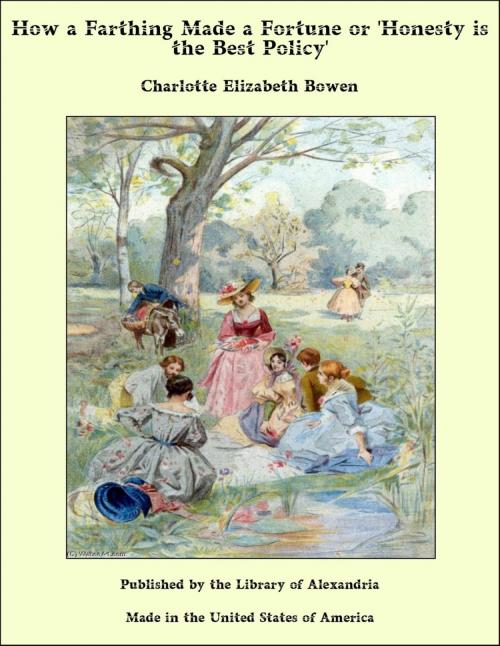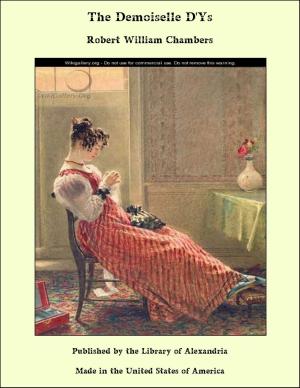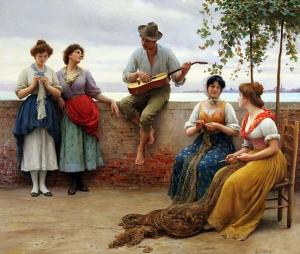How a Farthing Made a Fortune or 'Honesty is the Best Policy'
Nonfiction, Religion & Spirituality, New Age, History, Fiction & Literature| Author: | Charlotte Elizabeth Bowen | ISBN: | 9781465616258 |
| Publisher: | Library of Alexandria | Publication: | March 8, 2015 |
| Imprint: | Language: | English |
| Author: | Charlotte Elizabeth Bowen |
| ISBN: | 9781465616258 |
| Publisher: | Library of Alexandria |
| Publication: | March 8, 2015 |
| Imprint: | |
| Language: | English |
Few children, if any, who read this tale will probably be able to form any idea of such a wretched home as that in which lived little Dick Nason, the ragman's son. There are houses and rooms in some of the back streets in London where men, women, and children herd almost like wild beasts—haunts of iniquity and misery, and where the name of God is never heard except in the utterance of terrible oaths or execrations. Such was Roan's Court, a place which gave the police continual trouble, and many a hard blow in the execution of their duty. The houses were let out in rooms, of which the upper ones were the most healthy, as possessing a little more light and air than the others; but the cellar floors were almost destitute of both these common luxuries of life, being sunk considerably below the level of the court, and the windows, consisting of four small panes of glass, begrimed with dirt, or if broken, as was generally the case, stuffed up with dirty rags or paper. It was in one of these cellar rooms that Dick Nason had been born, and in which he lived till he was twelve years old. How he had lived, how he had been fed, and how clothed, it would be difficult to imagine. His mother had been a tidy sort of woman in her younger days, gaining her living as a servant in the family of a small tradesman. But she married a man who was not of sober habits, and who in consequence lost all steady employment, and sank lower and lower till he was reduced to the position of a ragman, going about to collect clothes, bones, rabbit-skins, and such odds and ends as he could scrape together from the servants. The trade was not an unlucrative one on the whole, but Nason spent so much in drink, and his wife having fallen into the same bad habit, kept so little of what she could contrive to get from her husband for household purposes, that they seldom sat down to a regular meal, but scrambled on in a wretched way, becoming every year more degraded and more confirmed in their habits of intemperance.
Few children, if any, who read this tale will probably be able to form any idea of such a wretched home as that in which lived little Dick Nason, the ragman's son. There are houses and rooms in some of the back streets in London where men, women, and children herd almost like wild beasts—haunts of iniquity and misery, and where the name of God is never heard except in the utterance of terrible oaths or execrations. Such was Roan's Court, a place which gave the police continual trouble, and many a hard blow in the execution of their duty. The houses were let out in rooms, of which the upper ones were the most healthy, as possessing a little more light and air than the others; but the cellar floors were almost destitute of both these common luxuries of life, being sunk considerably below the level of the court, and the windows, consisting of four small panes of glass, begrimed with dirt, or if broken, as was generally the case, stuffed up with dirty rags or paper. It was in one of these cellar rooms that Dick Nason had been born, and in which he lived till he was twelve years old. How he had lived, how he had been fed, and how clothed, it would be difficult to imagine. His mother had been a tidy sort of woman in her younger days, gaining her living as a servant in the family of a small tradesman. But she married a man who was not of sober habits, and who in consequence lost all steady employment, and sank lower and lower till he was reduced to the position of a ragman, going about to collect clothes, bones, rabbit-skins, and such odds and ends as he could scrape together from the servants. The trade was not an unlucrative one on the whole, but Nason spent so much in drink, and his wife having fallen into the same bad habit, kept so little of what she could contrive to get from her husband for household purposes, that they seldom sat down to a regular meal, but scrambled on in a wretched way, becoming every year more degraded and more confirmed in their habits of intemperance.










![Cover of the book The Cabin [La Barraca] by Charlotte Elizabeth Bowen](https://www.kuoky.com/images/2015/march/300x300/9781465514592-Ey2r_300x.jpg)




